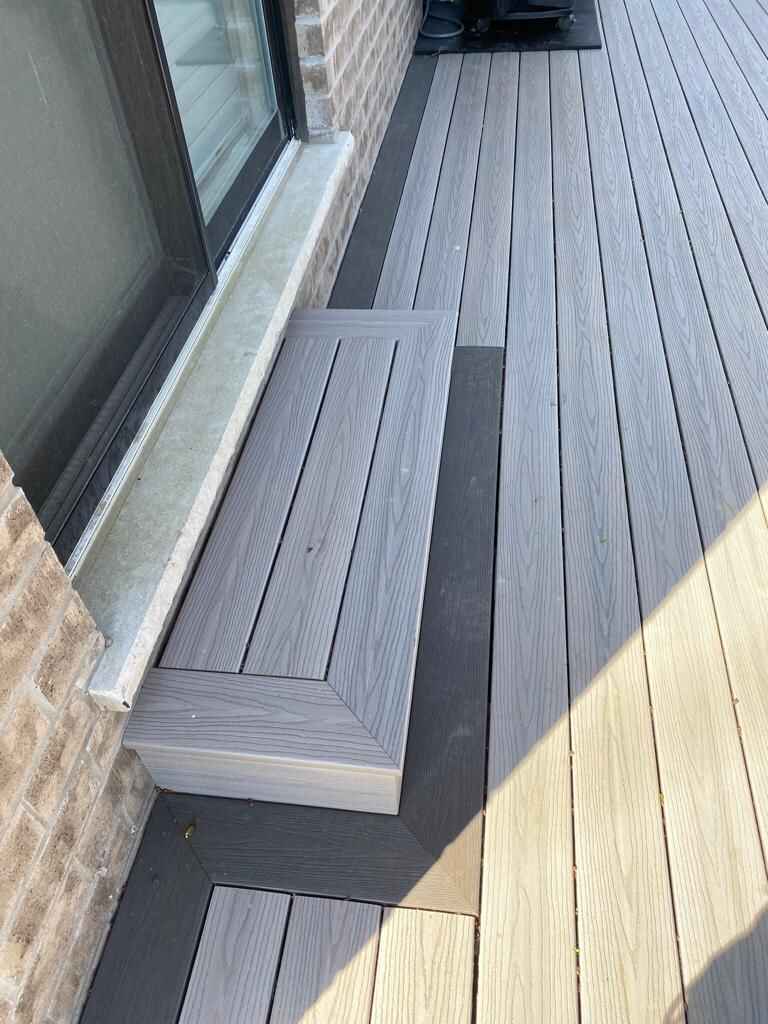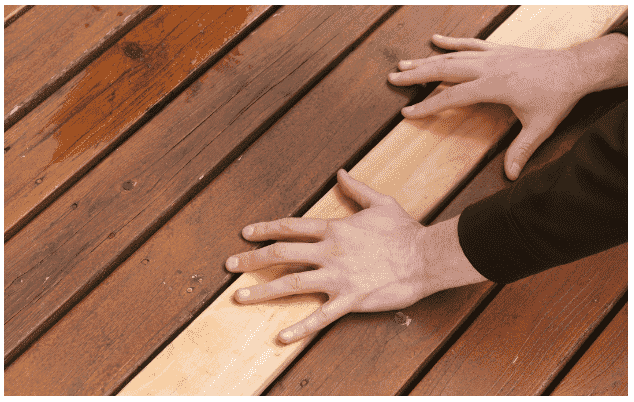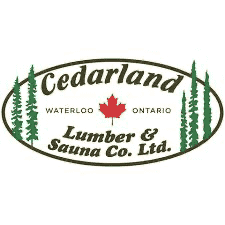
What’s the difference between PVC vs composite decking? Aren’t they both just plastic? Does it really matter which material you use for your deck? We at Mississauga Decks & Trim are here to clear up the confusion and help you decide which material is best for your custom deck.
First things first. Do you currently have a deck in your backyard?
If not, check out this article on how to find a quality deck builder in Mississauga. If the answer is yes, do you know what the material is? Decks that are made out of wod may seem pretty good at first until you realize they are high maintenance, they have short lifespans, and they are easily damaged by natural elements.
Instead of spending tons of money trying to repair things like wood rot and mildew every other year, people are finding it easier and cheaper to replace their decks with materials that are more durable, weather-resistant, and of premium quality.
Before reading on, you may want to find out if it’s time to replace your deck.
Now let’s dive into PVC vs composite decking. Though they’re both made of synthetic materials, each option has its pros and cons. In this article, we’ll outline the similarities and differences so you can decide which material best suits your preferences.

Composite decks are a mixture of wood and plastic that form a material that is stronger, heavier, and longer lasting than wood.
Generally made from recycled materials, the combination of plastic and wood pulp core makes it sustainable and resistant to things like weather rot and insects. Most composites these days are “capped composite”, which is the plastic shell that protects the surface of the deck board.
The capped surface is very durable and scratch-resistant. It comes with fade and stain warranties ranging from 25 years to a lifetime. Compared to natural wood, it’s very customizable, and can be used to replicate the colour and aesthetic of natural wood if you prefer that sort of design.
PVC stands for polyvinyl chloride. Similar to composite decks, PVC decks are also made from synthetic materials; however, they are 100% plastic rather than a combination of plastic and wood fibers.
PVC decks are just as durable and long-lasting as composite decks and require just as little maintenance. They are also extremely customizable when considering which colour you want, and the overall appearance of your deck.
Appearance is typically the main deciding factor for people who are considering a composite deck. The fact that it’s a wood blend gives it a much more natural look if that’s what best suits the aesthetic of your home.
It’s pretty common to find composite decks finished to look like real wood so that you can still have that rustic appeal without breaking the bank. Some of the higher-end composites can almost fool you into thinking it’s real wood.
The added wood grain in composite decks also contributes to their slip-resistance, a feature not exactly commonly thought of when considering something made with plastic.
If for whatever reason you need to step out onto your deck after it rains, the added texture and friction from the wood grain makes your trip that much safer. It’s also something to consider if you want to build your deck around a pool or any other water feature.
The last benefit of composite decking does not expand or contract as much as PVC. PVC decks expand and contract with changes in temperature, something pretty common in a country like Canada.
Composite is not by any means exempt from movement due to temperature changes, but it is much more stable than PVC.
Need an image of a composite deck from MDT if possible
While composite decks are heavier than wood decks due to their blend of wood grain and plastic, PVC decks are the exact opposite.
Because of its 100% plastic build, PVC is a significantly lighter material, easier to handle and makes the building process much easier. Deck installation is also simple and the material is extremely versatile.
PVC decks are also 100% mould and mildew resistant due to their make up of completely synthetic materials. Composite decks, because of the presence of wood grain, can still (albeit the chances are unlikely) allow for mildew growth.
If your deck is in a shaded area (under a tree), or in close proximity to the ground, or near a body of water (pools, spas ponds), PVC decking is a better option.
PVC also tends to be cooler to walk on in comparison to composites, but whichever material you decide to go with, picking lighter colors will help with reducing heat retention.
Though PVC decks for the most part use less recycled materials, they are 100% recyclable once it’s time to replace your deck. Decks never last forever, regardless of how good you are with upkeep. So if you want a deck that, once it reaches its natural end, can be recycled, look no further than PVC. Composite decks, despite being made of recycled materials, cannot often be recycled.
Need an image of a PVC deck from MDT if possible
Though both materials are great options, the choice between the two really comes down to which material best suits your preferences.
If you prefer something that resembles natural wood, is more affordable, and is more stable in varying temperatures, composite decking might be for you.
If you want something that is 100% mould and mildew-resistant, your deck is situated around a shaded area/pool, or you’re seeking a more environmentally-friendly option, PVC decking might be better for you.
Another factor to keep in mind should be the cost of PVC decks and the cost of composite decks. Depending on the deck building contractor you choose, PVC tends to be a little pricier than composite as it is considered a premium material.
Generally speaking, the cost of composite decking can range from $8-$14 per sq. ft whereas the cost of PVC decking can range from $12-$18 per sq. ft.
Though both options are typically more expensive than most natural woods, the payoff in terms of durability, weather resistance, and cost-effectiveness is pretty massive if you don’t want to spend up to $1,000 in maintenance every year on a wood deck.
Now that you’ve learned the difference between PVC decking and composite decking, it’s time for you to make a decision. Our team at Mississauga Decks & Trim has worked extensively with both materials and can help you with your deck-building project or even a complete backyard makeover!
Contact us for a consultation or call us at (647) 321-1545 today to get started.













